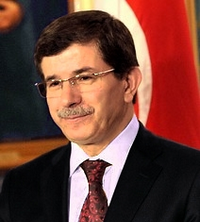The term "zero problems with neighbors" has become closely associated with Turkish Foreign Minister Ahmet Davutoglu's ambitious and proactive new foreign policy. The formula is used to describe an approach that has seen Ankara re-engage politically, economically and culturally with its surrounding region.
But there's another term that has frequently been attached to Ankara's newfound diplomatic activism, one that Turkish policymakers are much less fond of: "neo-Ottomanism." At its best, the term describes a foreign policy that derives part of its legitimacy from Turkey's experience as a longtime imperial power in its wider neighborhood. At its worst, it suggests hegemonic ulterior motives behind Turkey's newfound activism. Despite Ankara's displeasure, it has stuck around, sustained to a certain extent by Turkey's own ambitions.
"The official rhetoric is that Turkey is doing [its foreign policy outreach] for the good of the region, but there is also this sense of grandeur," says Sami Kohen, a veteran foreign affairs columnist with the daily Milliyet newspaper. "Davutoglu himself wants Turkey to be a major player, with this sense of mission. It's no wonder that there is all this talk of neo-Ottomanism."

